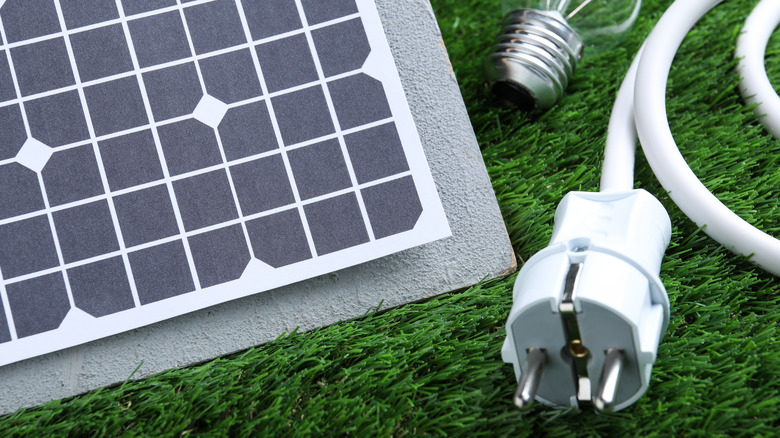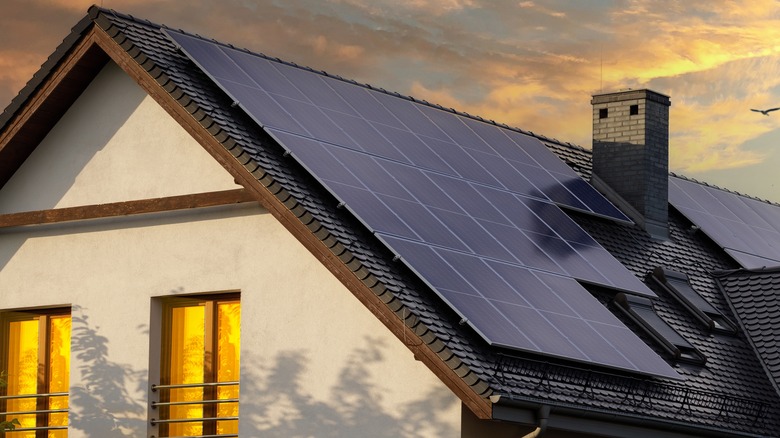Are Plug In Solar Panels Any Good? Or A Waste Of Money?
There are several reasons for someone to consider installing solar panels in their home these days. Such as the expectation of significantly lower electric bills, government assistance with installation logistics, the feeling of reducing personal environmental impact, and so on. However, actually getting a home setup for solar power is another matter entirely, and this process can come with several additional expenses outside of the often eye-watering installation fees that can creep past $20,000 in costs.
Such a hefty investment can be a major deterrent, or at least give one pause, to the point that you might be tempted to try and find more affordable alternatives that still promise a similar reduction in power consumption (and smaller bills). This is why "plug-in" solar panels, which claim to pipe the energy pulled from sunlight into a personal electrical grid via a regular plug and wall outlet, have become a somewhat common alternative solution.
But can a couple of solar panels plugged directly into a wall outlet really provide the same results as professionally installed solar panels on a home's roof at a fraction of the cost? The short answer is no. Here's why.
Here's the deal
How much power an average home needs depends on location and personal consumption, but is estimated at around five to seven kilowatts (5,000 to 7,000 watts). So even at a lower estimate of roughly $300+ for a 200 watt plug-in panel, you're looking at dozens of panels, totaling thousands of dollars. Still cheaper than the expected $12K to $16K for a 5 kilowatt solar panel system (not counting installation), but there are other factors to be aware of.
As with any plug-in devices, cords can be unsightly, get tangled, and create tripping hazards. Additionally, plugging solar panels into a shared circuit (i.e. one that's connected to any other devices or appliances) can be a pretty significant fire risk. If you're really interested in going solar and can't justify the initial cost of a proper installation, try looking into Community Solar availability in your area to see if you can add your household to a nearby solar array.
Or if you'd prefer something specifically centered around your home, there are a multitude of solar power stations and generator options on the market right now. These smaller solar power systems are sometimes self-contained (as in some models have their own built-in or included panels) and work much like a gas-powered generator — except without the exhaust fumes. They won't fully power your home all day and night, but they can be useful during hours where you don't use as much power.

